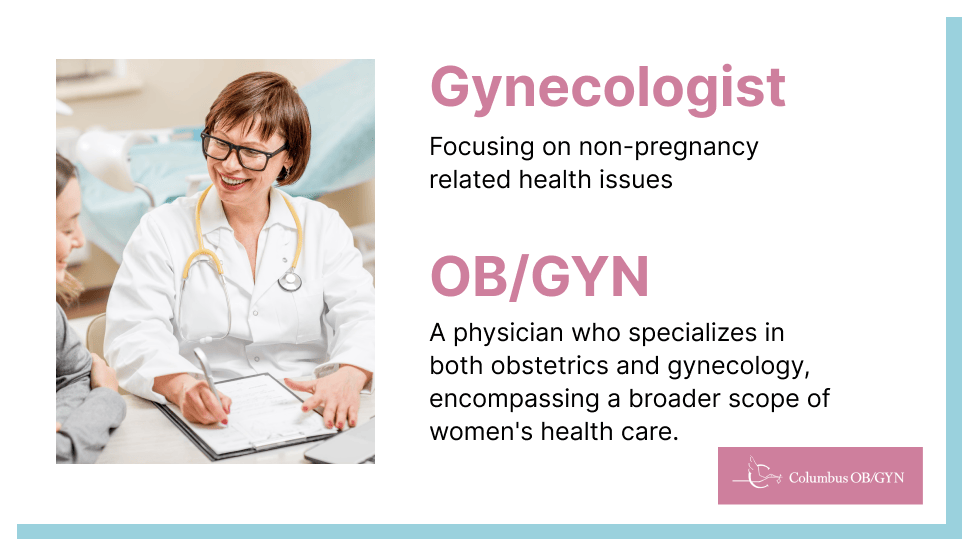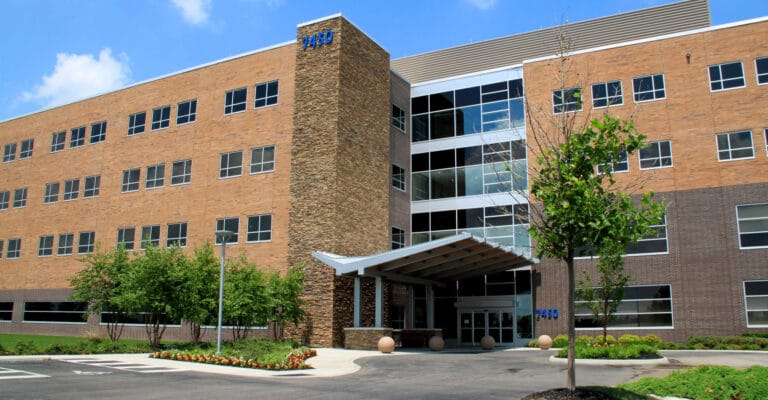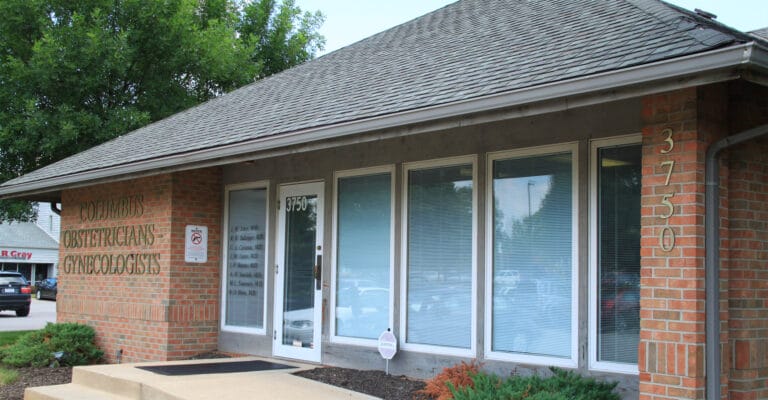
What Is the Difference Between a Gynecologist and an OB/GYN?
Understanding the difference between a gynecologist and an OB/GYN is essential for receiving the right care at the right time.
So, what is the different between a gynecologist and an OB/GYN?

Gynecologist vs. OB/GYN: Unveiling the Distinction
The terms “gynecologist” and “OB/GYN” are often used interchangeably, yet they signify different specialties.
Let’s break down the roles and expertise of each to clarify their unique contributions to women’s health.
What Is a Gynecologist?
A gynecologist specializes in the female reproductive system, focusing on non-pregnancy related health issues. This includes regular check-ups, Pap smears, and pelvic exams to monitor reproductive health.
They also diagnose and manage conditions like endometriosis, ovarian cysts, and STIs.
In preventative measures, they offer guidance on contraception and ways to protect yourself against diseases like HPV.
What Is an OB/GYN?
An OB/GYN, or Obstetrician-Gynecologist, is a physician who specializes in both obstetrics and gynecology, encompassing a broader scope of women’s health care.
This dual expertise allows them to provide additional care in pregnancy and childbirth care and surgical procedures.
Along with all of the services a gynecologist provides, an OB/GYN services include preconception counseling, postpartum support, cesarean sections, hysterectomies, and other reproductive surgeries.

The Role of a Gynecologist in Women's Health
Gynecologists are pivotal in ensuring the health and well-being of women, focusing on the female reproductive system outside of pregnancy.
Their expertise covers various services, from routine care to addressing complex reproductive issues in women.
- Routine Examinations: Conducting annual or your first exam to assess reproductive health, including Pap smears, pelvic exams, and breast exams.
- Diagnosis and Treatment: Identifying and managing conditions affecting the reproductive system, such as endometriosis, fibroids, ovarian cysts, and sexually transmitted infections (STIs).
- Preventive Care: Counseling on contraception options, administering HPV vaccines, and guiding patients on how to protect against reproductive health diseases.
- Menstrual Disorders Management: Offering treatments for issues like irregular periods, heavy bleeding, or painful menstruation.
- Fertility and Contraception: Providing advice and treatments for those seeking to conceive or prevent pregnancy.
- Menopause Management: Assisting with symptom management and hormone replacement therapy options during the transition to menopause.
When to Consult a Gynecologist
Knowing when to see a gynecologist is crucial for maintaining your reproductive health.
Consider scheduling a visit for:
- Annual Check-ups: To monitor your overall reproductive health and perform necessary screenings.
- Reproductive Health Concerns: If you experience abnormal bleeding, pelvic pain, or unusual discharge.
- Contraceptive Counseling: To explore your options for birth control or discuss fertility concerns.
- Preventive Care: For HPV vaccinations or guidance on reducing the risk of reproductive health diseases.
- Menstrual Irregularities: To address concerns related to your menstrual cycle or if you’re experiencing menopause symptoms.
Understanding the OB/GYN's Dual Expertise
OB/GYNs hold a unique position in the medical field, blending the care of obstetrics and gynecology to offer a comprehensive approach to women’s health.
This dual expertise ensures that women receive specialized care throughout all stages of life, including pregnancy, childbirth, and beyond.
Navigating Pregnancy and Reproductive Health
OB/GYNs are the cornerstone of pregnancy and reproductive health, providing:
- Pre-Conception Counseling: Guidance for women planning to become pregnant, focusing on health optimization for mother and baby.
- Prenatal Care: Regular appointments to monitor the health of the mother and the development of the fetus, including ultrasounds, dietary advice, and managing pregnancy-related conditions.
- Labor and Delivery Support: Expertise in managing natural childbirth, cesarean sections, and any complications that may arise during delivery.
- Postpartum Care: Support and medical care after childbirth, addressing both physical recovery and emotional well-being, including breastfeeding advice and postpartum depression.
Comprehensive Care Beyond Childbirth
The role of an OB/GYN extends far beyond the delivery room, offering:
- Gynecological Health: Routine exams, cancer screenings, and treatment of gynecological disorders, ensuring ongoing health and preventive care.
- Family Planning: Counseling on contraception options and fertility solutions, tailored to each woman’s life stage and health goals.
- Menopause Management: Assistance with symptoms of menopause, offering hormone therapy and other treatments to manage this transition smoothly.
- Surgical Interventions: Performing surgeries such as hysterectomies, laparoscopies, and other procedures related to the reproductive system.
Empower Your Wellness Journey with Our Expert Care
Whether you’re navigating the journey of pregnancy, addressing specific health concerns, or simply seeking preventative care, the right specialist can make all the difference.
Our team of dedicated OB/GYNs and gynecologists in Lewis Center, Ohio are here to support you at every stage of your wellness journey, offering personalized care tailored to your unique health goals.
Contact Columbus OB/GYN today, and let us be your partners, guiding you toward a future of wellness and empowerment.







